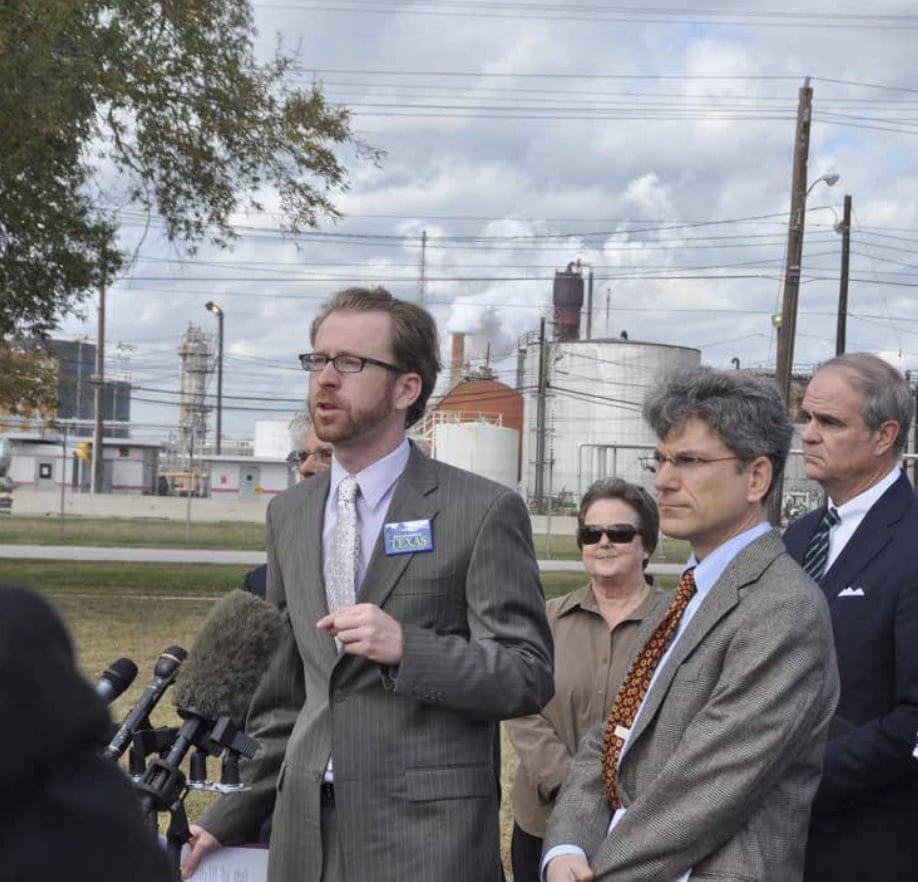
5th Circuit votes to rehear Exxon appeal
NEW ORLEANS—In a brief two-paragraph order issued on Feb. 17, the federal 5th Circuit Court of Appeals announced that a majority of its 16 active judges had voted to “vacate” last August’s decision from a three-judge panel that upheld the $14.25 million penalty National Environmental Law Center (NELC) attorneys had secured against ExxonMobil Corporation for thousands of violations of the Clean Air Act, and to grant Exxon’s request that its appeal be heard anew by all 16 judges—what is known as an “en banc” rehearing.
This is an extremely frustrating development in a case that has already dragged on for 13 years, from the filing of the lawsuit in 2010 through trial in 2014 and then several rounds of appeals. Plaintiffs Environment Texas and Sierra Club, and their members who live near Exxon’s massive oil refinery and chemical plant complex in Baytown, Texas, have good reason to be disappointed that the assessment of a penalty has been put on hold yet again.
On a more positive note, however, NELC’s litigation team welcomes the opportunity to establish before the full Court of Appeals the right of citizens, specifically including the four Baytown residents who bravely testified at trial, to hold even the largest corporations accountable for unlawful pollution.
The issue Exxon now raises affects citizens’ access to federal courts and has national importance. On its face, the answer to this most basic question should be obvious: Do people who live, work, shop, attend church, exercise, and visit parks and playgrounds near (sometimes directly across the road from) the largest industrial complex in the United States have a personal stake in whether the air pollution from that complex stays within its legally prescribed limits?
That simple question is at the heart of Exxon’s brazen challenge to the legal standing of the very people subjected to its toxic emissions to challenge its violations in court. Exxon expresses no qualms about trampling on decades of legal precedent protecting this essential Constitutional right in its quest to protect its financial bottom line.
The City of Houston, Harris County (where Baytown is located), and the U.S. Department of Justice have already weighed in on our behalf, filing amicus curiae (friend of the court) briefs urging the Court of Appeals to reject Exxon’s arguments and to uphold the imposition of a significant penalty.
As of this writing, oral arguments on the appeal are scheduled for the week of May 15.

